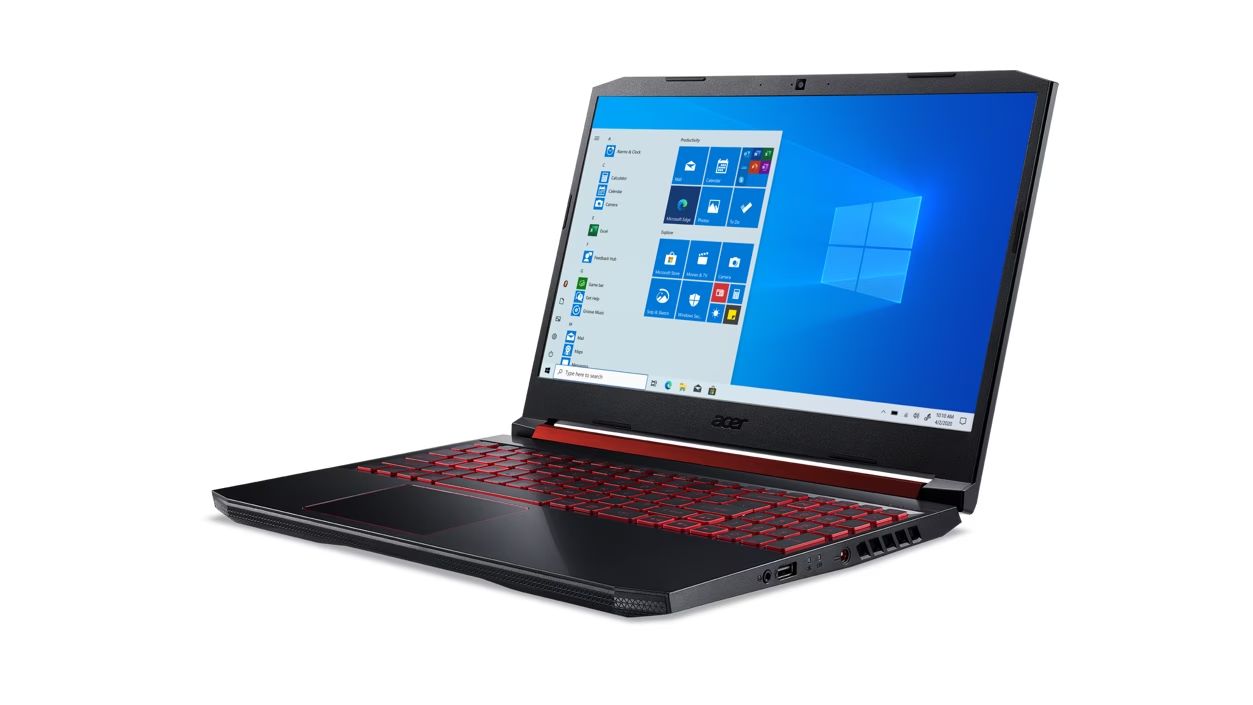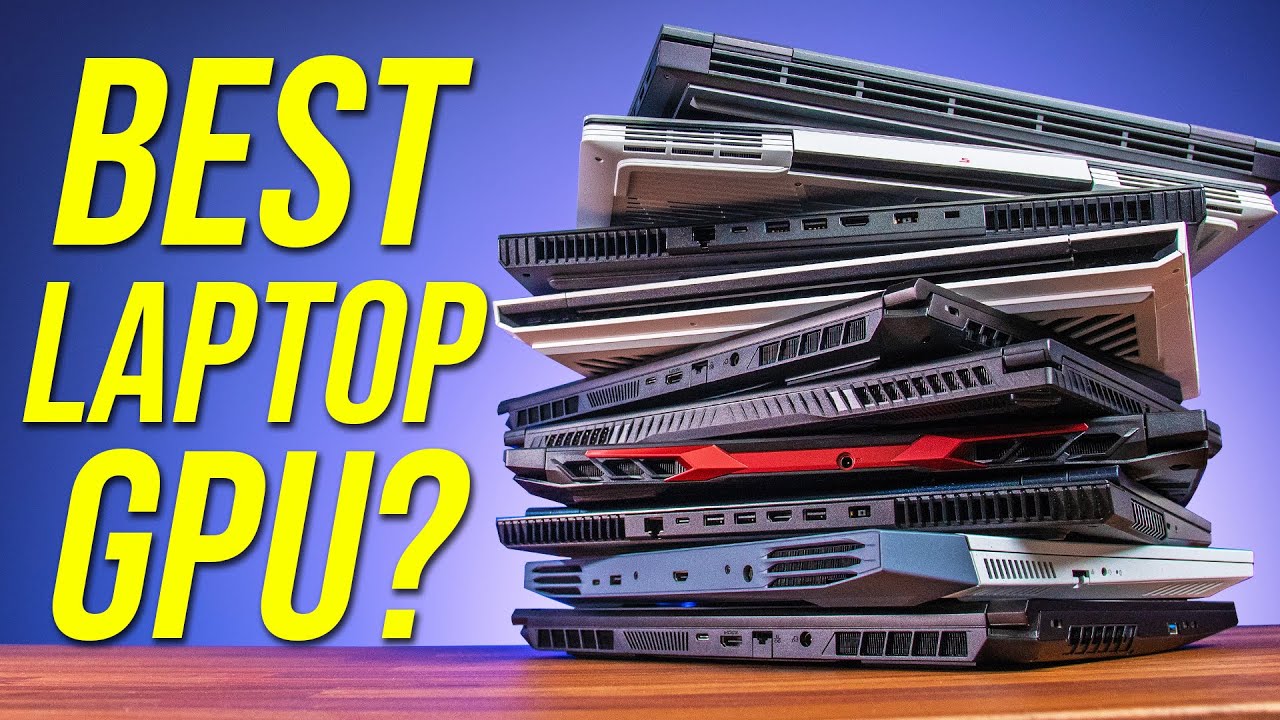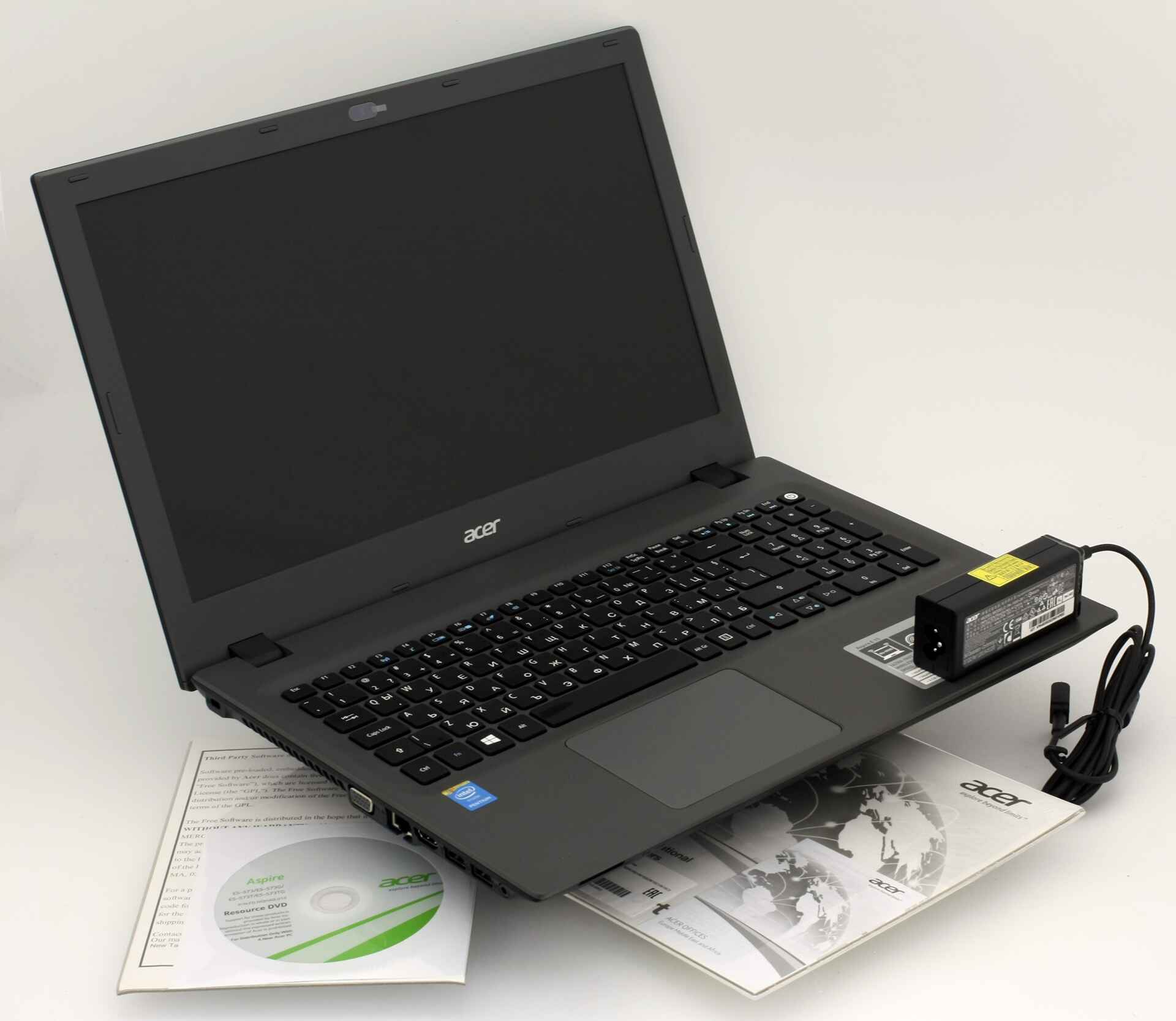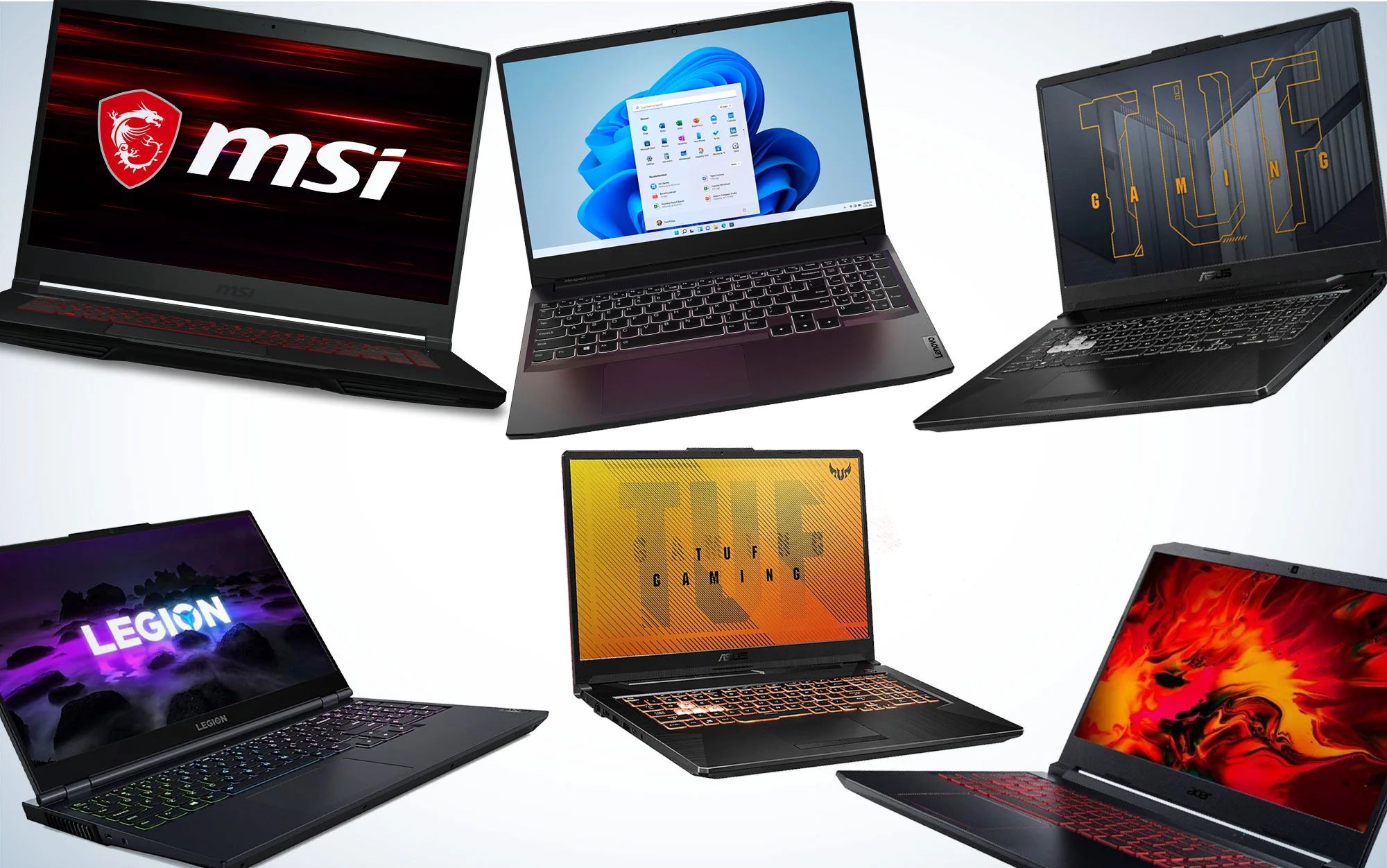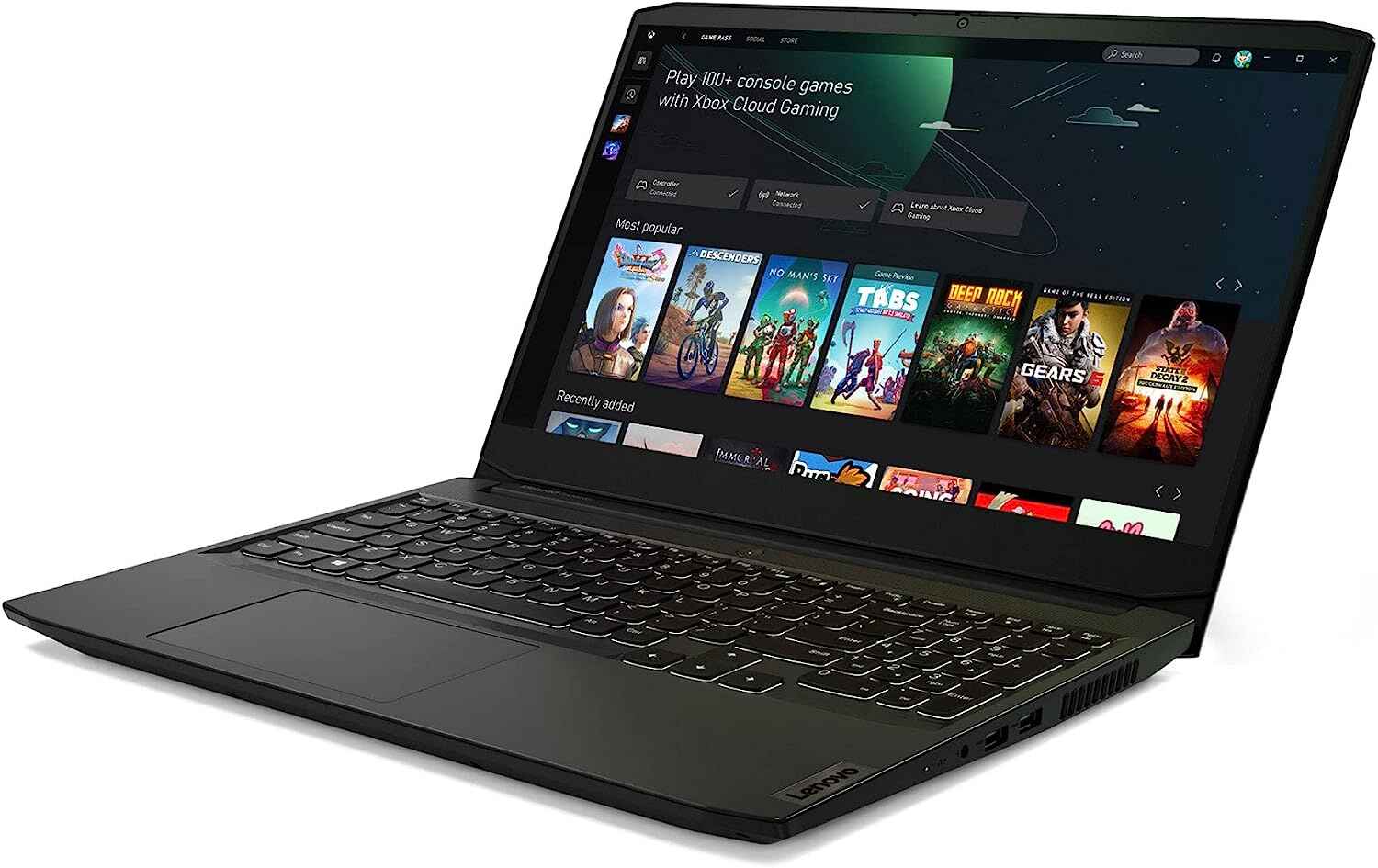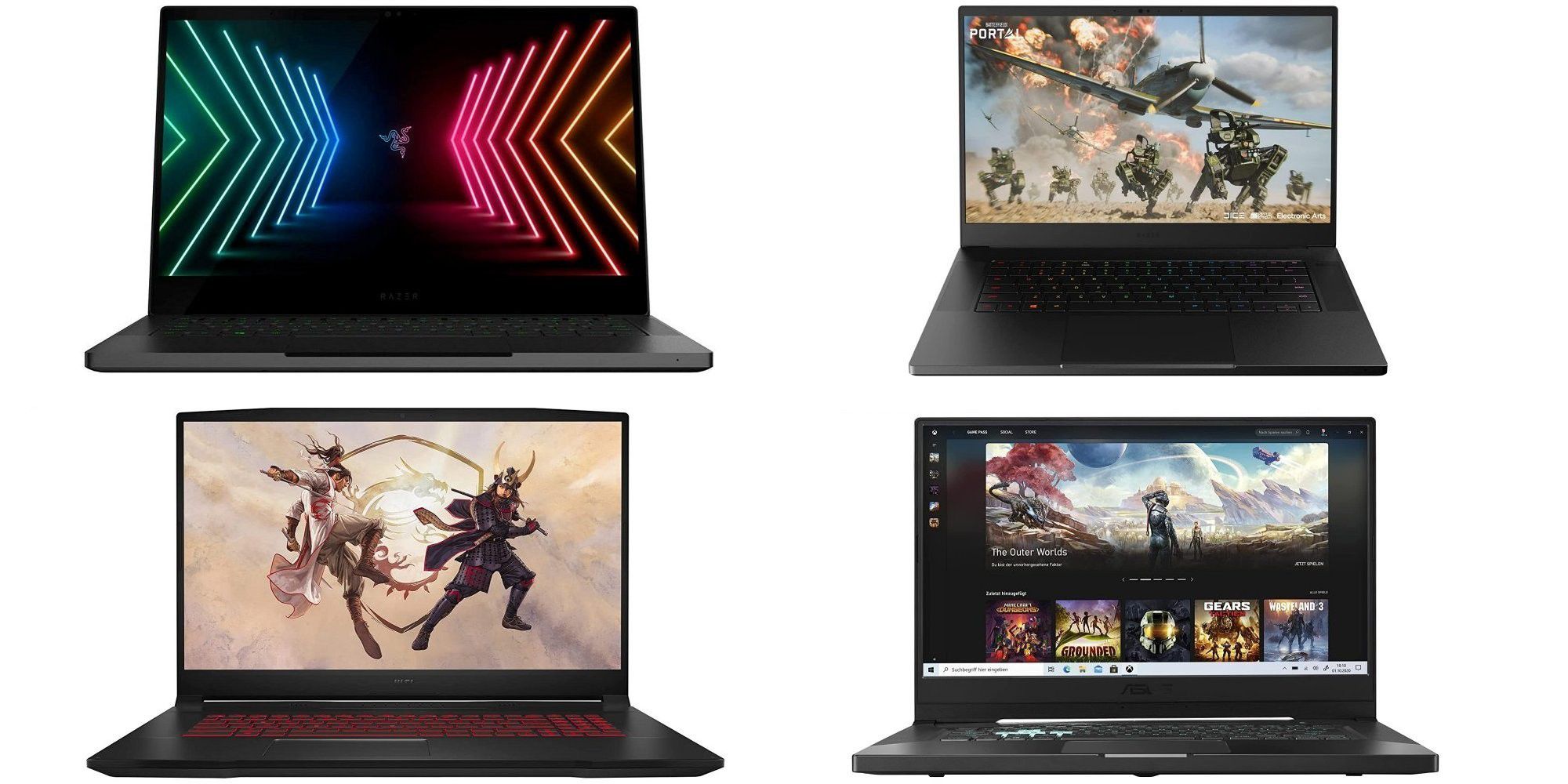Processor Power and Speed
When it comes to gaming laptops, one of the most crucial factors to consider is the processor power and speed. The processor, also known as the CPU (Central Processing Unit), is responsible for carrying out all the computations and calculations necessary for running games smoothly.
A powerful processor with a high clock speed and multiple cores will ensure that your gaming laptop can handle the demands of modern games without any lag or slowdowns. Look for laptops equipped with Intel Core i5 or i7 processors, or the AMD Ryzen series, which are known for their excellent performance in gaming.
Additionally, consider the generation of the processor. The latest generations tend to offer better performance and energy efficiency. For example, the Intel 9th or 10th generation processors or the AMD Ryzen 4000 series provide excellent gaming capabilities.
The choice of processor also depends on the type of games you plan to play. If you’re into graphics-intensive games or plan on streaming your gameplay, a more powerful processor will be necessary to handle the load effectively.
However, keep in mind that a powerful processor alone won’t guarantee the best gaming experience. It works in conjunction with other components like the graphics card, RAM, and storage. So, ensure that these components complement each other for optimal performance.
To summarize, when selecting a gaming laptop, prioritize a powerful processor with high clock speed and multiple cores. Consider the latest generation CPUs from reliable manufacturers like Intel and AMD. Take into account the requirements of the games you intend to play to ensure your laptop can handle them with ease. By doing so, you will have a gaming laptop that provides excellent performance and an immersive gaming experience.
Graphics Card Performance
When it comes to gaming, the graphics card is one of the most critical components of a gaming laptop. It is responsible for rendering and displaying the in-game graphics, effects, and textures, making it crucial to choose a laptop with a high-performance graphics card.
A powerful graphics card, also known as a GPU (Graphics Processing Unit), can greatly enhance your gaming experience. Look for laptops equipped with dedicated gaming graphics cards from reputable manufacturers like NVIDIA or AMD. Popular choices include the NVIDIA GeForce RTX series or the AMD Radeon RX series.
The performance of the graphics card is measured in terms of clock speed, number of cores, and VRAM (Video Random Access Memory) capacity. A higher clock speed and more cores will allow the graphics card to handle complex rendering tasks more efficiently, resulting in better visual quality and smoother gameplay.
Additionally, VRAM plays a crucial role in loading and storing high-resolution textures and game assets. Gaming laptops with at least 4GB of VRAM will ensure smooth performance in most modern games.
Keep in mind that the graphics card you choose depends on the type of games you play. If you’re into AAA titles or plan on playing graphically demanding games, you’ll need a more powerful graphics card. On the other hand, if you mostly play casual or older games, a mid-range graphics card will suffice.
It’s also worth noting that some gaming laptops offer the option to upgrade the graphics card in the future. This can be beneficial if you want to future-proof your gaming laptop and ensure it can handle upcoming games.
To conclude, when selecting a gaming laptop, prioritize a high-performance graphics card from reputable manufacturers like NVIDIA or AMD. Consider factors such as clock speed, number of cores, and VRAM capacity. Tailor your choice to the type of games you play and consider future upgrade possibilities. By selecting a laptop with a powerful graphics card, you’ll enjoy stunning visuals and smooth gameplay for an immersive gaming experience.
Display Quality and Resolution
The display quality and resolution of a gaming laptop play a significant role in your gaming experience. A visually stunning and high-resolution display can bring games to life, immersing you in vibrant and detailed visuals. Therefore, it’s essential to consider these factors when choosing a gaming laptop.
First, look for a laptop with a high-quality display panel. IPS (In-Plane Switching) panels are known for their excellent color accuracy, wide viewing angles, and crisp image quality. On the other hand, TN (Twisted Nematic) panels are more budget-friendly but tend to have narrower viewing angles and lower color accuracy.
Next, consider the resolution of the display. A higher resolution means more pixels on the screen, resulting in sharper and more detailed visuals. The most common resolutions for gaming laptops are Full HD (1920×1080), Quad HD (2560×1440), and 4K Ultra HD (3840×2160). The choice depends on your preference and the specifications of the games you play.
Furthermore, a high refresh rate is beneficial for fast-paced games as it reduces motion blur and provides smoother gameplay. Look for gaming laptops with refresh rates of 120Hz or higher for an optimal gaming experience. However, keep in mind that higher refresh rates often come at a higher cost.
It’s worth mentioning that some gaming laptops also support NVIDIA G-Sync or AMD FreeSync technology. These technologies synchronize the display’s refresh rate with the GPU’s output, reducing screen tearing and providing a more seamless gaming experience.
Lastly, consider the size of the display. A larger screen size can enhance immersion, but it also makes the laptop less portable. Most gaming laptops have screen sizes ranging from 15 to 17 inches. Choose a size that strikes a balance between your gaming needs and portability requirements.
To sum up, prioritize a gaming laptop with a high-quality display panel, such as an IPS panel, for accurate colors and wide viewing angles. Choose a resolution that suits your preferences and the demands of your games. Consider a high refresh rate for smoother gameplay and look for additional features like G-Sync or FreeSync. Finally, find the right balance between screen size and portability. By selecting a gaming laptop with excellent display quality and resolution, you’ll enjoy stunning visuals that bring your games to life.
RAM and Storage Capacity
When it comes to gaming, having sufficient RAM (Random Access Memory) and storage capacity is crucial. These two components play a significant role in ensuring smooth and efficient gameplay, as well as providing enough space to store your games and other files.
The RAM of a gaming laptop determines how much data the laptop can process at a given time. For optimal gaming performance, look for laptops with at least 8GB of RAM. This will allow you to run most modern games smoothly. However, if you plan on playing more demanding games or multitasking while gaming, consider laptops with 16GB or even 32GB of RAM for better performance.
In addition to RAM, storage capacity is essential for storing your games, apps, and other media files. Gaming laptops typically come with two types of storage: SSD (Solid State Drive) and HDD (Hard Disk Drive). SSDs are faster and provide quicker load times for games and applications. On the other hand, HDDs offer larger storage capacity at a more affordable price.
A good option is to choose a gaming laptop that offers both an SSD and an HDD. The SSD can be used to store the operating system and frequently played games for faster access, while the HDD provides additional storage capacity for less frequently accessed games and files. Some gaming laptops even offer the ability to upgrade or add extra storage in the future, allowing you to expand as needed.
Ultimately, the amount of RAM and storage capacity you require depends on your gaming needs and usage preferences. Consider the specifications of the games you play and the other tasks you plan on performing simultaneously. This will help you determine how much RAM and storage capacity is necessary for a smooth gaming experience.
To summarize, prioritize gaming laptops with at least 8GB of RAM, but consider higher amounts like 16GB or 32GB for more demanding games or multitasking. Look for laptops that offer both SSD and HDD storage for a balance between speed and capacity. Tailor your choices to your gaming needs and usage preferences, ensuring you have enough RAM and storage for a seamless gaming experience.
Cooling and Ventilation
Proper cooling and ventilation are crucial aspects to consider when choosing a gaming laptop. The high-performance components and intense gaming sessions generate a significant amount of heat, which, if not properly managed, can lead to thermal throttling and reduced performance. Therefore, it’s important to look for a gaming laptop with effective cooling solutions.
Firstly, check if the laptop has multiple cooling fans and heat sinks. More fans and heat sinks help dissipate the heat more efficiently, preventing overheating during intense gaming sessions. Look for laptops with dedicated cooling systems, such as vapor chamber technology or copper heat pipes, which can further enhance cooling performance.
Ensure that the laptop has good airflow design with proper intake and exhaust vents. This allows cool air to enter the system and hot air to be expelled effectively. A well-designed cooling system can efficiently keep the internal components at optimal temperatures, preventing thermal throttling and maintaining consistent performance.
Consider the noise level of the cooling system as well. Some gaming laptops can be quite loud due to the powerful fans needed for effective cooling. Look for laptops with adjustable fan speeds or fan control software that gives you the option to balance between cooling performance and noise levels.
Regular maintenance and cleaning of the cooling system are also essential to ensure its effectiveness. Dust and debris can accumulate over time, clogging the vents and obstructing airflow. It’s recommended to clean the vents and fans periodically using compressed air to remove any accumulated dust and maintain optimal cooling performance.
Additionally, investing in a laptop cooling pad or a laptop stand with built-in cooling fans can further enhance cooling performance. These accessories help elevate the laptop to improve airflow and dissipate heat more efficiently, reducing the overall temperature of the system during gaming sessions.
In summary, cooling and ventilation are crucial factors when choosing a gaming laptop. Look for laptops with multiple cooling fans, heat sinks, and effective cooling solutions like vapor chamber technology or copper heat pipes. Ensure good airflow design with proper vents for intake and exhaust to prevent overheating. Consider the noise level and maintenance requirements of the cooling system. Additionally, using a laptop cooling pad or stand can further enhance cooling performance. By prioritizing cooling and ventilation in your gaming laptop choice, you’ll ensure optimal performance and longevity for your gaming sessions.
Battery Life
Battery life is an important consideration for gaming laptops, especially if you plan on gaming on the go or in situations where you don’t have access to a power outlet. While gaming laptops are generally known for their shorter battery life compared to regular laptops, it’s still crucial to ensure that the laptop can last long enough for your gaming sessions.
When looking at the battery life of a gaming laptop, keep in mind that it will vary depending on factors like the intensity of the games you play, screen brightness, and other power-hungry settings. However, a laptop with at least 4-6 hours of battery life under normal usage conditions is a good benchmark for most gaming needs.
It’s essential to note that battery life is typically shorter when gaming compared to other tasks like web browsing or watching videos. Games tend to put a high strain on the system, utilizing the CPU and GPU more intensively, which can drain the battery more quickly. To prolong battery life during gaming sessions, consider adjusting settings like screen brightness, reducing graphics settings, and closing unnecessary background applications.
Some gaming laptops come with advanced battery-saving technologies like Nvidia’s BatteryBoost or AMD’s Radeon Chill, which optimize power usage during gaming and can potentially extend battery life. Look for laptops that offer these features if battery life is a major concern for you.
If you anticipate long gaming sessions away from a power source, it may be worth investing in an extra battery or a portable power bank. These accessories can provide additional battery life when needed and allow you to continue gaming without interruptions.
Lastly, keep in mind that the weight and size of the laptop can influence its portability and overall convenience. Gaming laptops with larger screens and more powerful components tend to be heavier and have larger batteries. Consider your priorities, whether it’s portability or longer battery life, and choose a laptop that aligns with your needs.
To summarize, battery life is an important factor to consider when selecting a gaming laptop. Look for laptops with at least 4-6 hours of battery life under normal usage conditions. Adjust settings and utilize battery-saving technologies to extend battery life during gaming sessions. Consider additional accessories like extra batteries or portable power banks for prolonged gaming away from a power source. Balance your priorities between battery life and the weight/size of the laptop. By choosing a gaming laptop with a suitable battery life, you can enjoy gaming sessions without worrying about running out of power.
Keyboard and Trackpad Quality
The keyboard and trackpad are essential components of a gaming laptop, contributing to comfort, convenience, and overall gaming experience. When choosing a gaming laptop, it’s crucial to consider the quality and functionality of these input devices.
A good gaming laptop should have a high-quality keyboard that offers a comfortable and responsive typing experience. Look for laptops with keyboards that have full-sized keys, good key travel distance, and tactile feedback. These features will enhance your gaming and typing experience, allowing for accurate and efficient inputs. Backlit keyboards are also advantageous, especially for gaming in low-light conditions, as they provide better visibility of the keys.
It’s worth considering keyboards with customizable RGB lighting, as this feature allows you to personalize the appearance and create a more immersive gaming environment. Some gaming laptops even offer programmable macro keys, which can be assigned for quick and convenient access to in-game commands or other functions, providing a competitive advantage during gameplay.
In addition to the keyboard, the trackpad quality is also important, especially for tasks that require precision or when you don’t have access to an external mouse. A well-sized trackpad with good sensitivity and accurate tracking is crucial for smooth navigation and control. Look for gaming laptops with trackpads that support multi-touch gestures, as these can enhance productivity and make navigating the user interface more efficient.
However, it’s important to note that for serious gaming, an external mouse is recommended as it provides better accuracy and control for gaming inputs. Many gaming laptops have dedicated USB ports or Bluetooth capabilities, allowing you to connect your preferred gaming mouse easily.
To summarize, prioritize gaming laptops with high-quality keyboards that offer comfort, responsiveness, and customizable options like RGB lighting and macro keys. Look for well-sized trackpads that support multi-touch gestures for efficient navigation. Consider using an external gaming mouse for optimal control and precision during gaming. By choosing a gaming laptop with a top-notch keyboard and trackpad, you can enhance your gaming experience and overall productivity.
Portability and Weight
Portability and weight are important factors to consider when choosing a gaming laptop, especially if you plan on gaming on the go or need to carry your laptop frequently. The size and weight of the laptop can affect its overall comfort, convenience, and ease of use.
Gaming laptops come in various sizes, ranging from compact 13-inch models to larger 17-inch gaming powerhouses. Smaller laptops are generally more portable and easier to carry, making them suitable for travelers or those who prioritize mobility. However, they may have some limitations in terms of performance and screen size.
On the other hand, larger laptops offer larger displays and more powerful components, providing a more immersive gaming experience. However, they tend to be heavier and bulkier, making them less suitable for frequent travel. If you plan on mainly using your gaming laptop at home or in a fixed location, a larger and more powerful laptop may be a suitable choice.
Consider the weight of the laptop as well. Gaming laptops can vary in weight from around 3 to 9 pounds or more. A lighter laptop is generally more comfortable to carry around for extended periods, while a heavier laptop may be a burden during travel or prolonged usage.
Furthermore, check for additional features that enhance portability, such as slim bezels, which reduce the overall footprint of the laptop, or a compact and lightweight power adapter that’s easy to carry. Some gaming laptops even offer thin and light designs without compromising on performance, making them perfect for those who prioritize portability without sacrificing gaming capabilities.
To summarize, consider the size and weight of the gaming laptop based on your mobility needs and usage habits. Smaller and lighter laptops are more portable, while larger laptops provide a more immersive gaming experience. Look for additional features that enhance portability, such as slim bezels and lightweight power adapters. By finding the right balance between portability and performance, you can enjoy gaming on the go without compromising on your gaming experience.
Connectivity Options
Connectivity options are an important consideration when choosing a gaming laptop, as they determine how you can connect to various peripherals and external devices. These options play a crucial role in expanding the functionality and versatility of your gaming laptop.
One of the key connectivity options to look for is the availability of USB ports. USB ports allow you to connect accessories such as gaming mice, keyboards, external storage devices, and even VR headsets. Ensure that the laptop has an adequate number of USB ports, both USB 3.0 and USB Type-C, for maximum compatibility and convenience. Some gaming laptops even offer Thunderbolt 3 ports, which provide faster data transfer speeds and compatibility with high-resolution displays and external GPU enclosures.
If you plan on connecting your laptop to external displays or projectors, look for laptops with HDMI or DisplayPort outputs. These ports offer high-definition video and audio output, allowing you to enjoy your games on a bigger screen or share your gaming experience with others.
Networking capabilities are also essential for online gaming and connectivity. Look for laptops with built-in Wi-Fi, preferably supporting the latest Wi-Fi standards like 802.11ax (Wi-Fi 6) for faster and more reliable wireless connections. Additionally, having an Ethernet port can provide a stable and high-speed connection during online gaming sessions if you have access to a wired network.
Consider the availability of an SD card reader if you frequently transfer files from cameras or other devices. This feature can streamline the process and allow for quick and easy file transfers.
Audio connectivity is also worth considering, especially if you use external speakers or gaming headsets. Look for laptops with audio output ports, such as 3.5mm headphone jacks or optical audio outputs, to ensure compatibility with your preferred audio setup.
To summarize, prioritize gaming laptops with a variety of connectivity options. Look for an adequate number of USB ports, including USB 3.0 and USB Type-C, for connecting peripherals and external devices. Ensure the availability of HDMI or DisplayPort outputs for connecting to external displays or projectors. Check for networking capabilities like built-in Wi-Fi with the latest standards and an Ethernet port. Consider an SD card reader if you frequently transfer files. Lastly, confirm the availability of audio output ports compatible with your audio setup. By selecting a gaming laptop with comprehensive connectivity options, you’ll have the flexibility to connect to a wide range of devices and peripherals, enhancing your gaming experience and overall productivity.
Price and Value for Money
Price is a significant consideration when choosing a gaming laptop, and finding the right balance between affordability and performance is key. While gaming laptops generally tend to be more expensive than regular laptops, it’s essential to evaluate the value for money that a specific laptop offers.
Set a budget for yourself and consider the performance requirements of the games you plan to play. It’s important to understand that higher-priced gaming laptops often come with more advanced components, such as faster processors, powerful graphics cards, and better displays. These components contribute to better gaming performance and overall user experience.
When comparing prices, also consider the longevity of the laptop. Investing in a slightly higher-priced laptop with better specifications might be a better option in the long run, as it can handle new and demanding games for a longer period without becoming outdated quickly.
It’s worth noting that gaming laptops with premium features and designs, such as slim and lightweight bodies, RGB lighting, and high-resolution displays, are generally more expensive. If these features are not crucial to your gaming experience, you may find more affordable options that offer similar performance and specifications.
Additionally, consider the customer support and warranty that come with the gaming laptop. Look for laptops from reputable manufacturers that provide good after-sales support and warranty coverage. This can give you peace of mind knowing that your investment is protected and that you can rely on the manufacturer’s assistance if any issues arise.
Lastly, read reviews and compare specifications and prices from different retailers to get the best value for your money. Pay attention to customer feedback on performance, reliability, and overall user experience. This will help you make an informed decision and ensure that you are getting the most bang for your buck.
To sum up, consider your budget, the performance requirements of the games you plan to play, and the longevity of the laptop when evaluating the price and value for money. Assess whether premium features and designs are necessary for your gaming experience. Look for reputable manufacturers with good after-sales support and warranty coverage. Read reviews and compare specifications and prices to make an informed decision. By finding a gaming laptop that offers the right balance of affordability, performance, and long-term value, you can enjoy gaming without breaking the bank.










